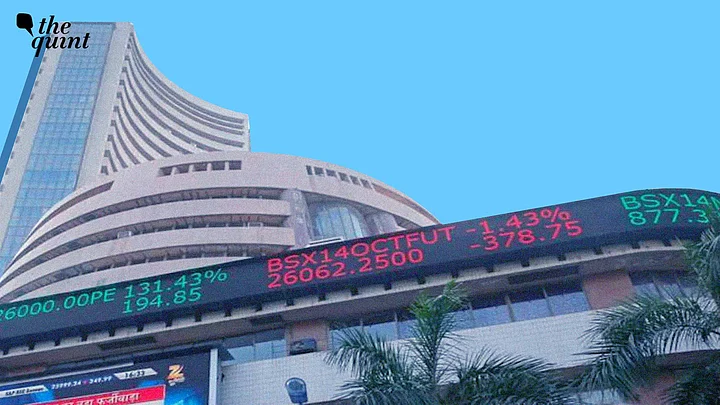(This article has been authored by a member of The Quint. Our membership programme allows those who are not full-time journalists or our regular contributors to get published on The Quint under our exclusive 'Member's Opinion' section, along with many other perks. Our membership is open and available to any reader of The Quint. Become a member today and send us your articles at TQMembersOnly@thequint.com.)
Foreign Institutional Investors (FIIs) are entities that invest in the securities of another country such as a USA entity investing in India. The cash inflow and outflow of these investors can have a significant impact on the performance of the Indian stock market.
A positive cash inflow from FIIs generally indicates that these investors are bullish on the Indian market and are buying more securities. This can lead to an increase in demand for Indian stocks, which can push up stock prices and contribute to a bullish market. On the other hand, a negative cash inflow (or outflow) from FIIs can indicate that these investors are becoming more bearish on the Indian market and are selling their securities. This can lead to a decrease in demand for Indian stocks and push down stock prices, contributing to a bearish market.
Are Foreign Investments the Sole Factor Affecting Stock Market Trends?
It is also important to note that other factors such as macroeconomic conditions, corporate earnings, and government policies also play a significant role in shaping the performance of the Indian stock market and should be taken into consideration when analysing the correlation between FII cash flows and market performance.
As we can see from the above charts, in the last five years, intense cash outflow and inflow from FIIs have shaped the performance of Indian Indices ie NIFTY50. Significant action could be seen in the months of November 2018, March 2020, and May 2022. This hints at a high correlation between FII's cash flow and the performance of the Indian stock market.
Also important to note that the FII Cash Flow just gives an indication of the positive or negative sentiment but it doesn't guarantee that the market will move in that direction. There are always other factors at play that affect the market.
Indirect Effects of Foreign Institutional Investors(FII’s) Cash Flow Trends
In addition to the direct impact that FII cash flows can have on the Indian stock market, there are also indirect effects to consider. For example, a large inflow of cash from FIIs can lead to an appreciation of the Indian Rupee against other currencies. This can have a negative impact on Indian exports as they become more expensive to foreign buyers. Additionally, it can also lead to inflation as a stronger currency makes imports cheaper, increasing their availability and driving up prices.
Another indirect effect of FII cash flows is their impact on interest rates. When there is a large inflow of cash from FIIs, it can lead to an increase in the supply of money in the economy. This can put downward pressure on interest rates, as there is more money available to be borrowed.
Lower interest rates can be good for the stock market as they make borrowing cheaper for businesses and consumers, which can lead to more investment and spending.
In summary, there is a complex relationship between the cash inflow and outflow of foreign institutional investors and the performance of the Indian stock market. While FII cash flows can have a direct impact on stock prices, there are also indirect effects to consider such as the impact on currency exchange rates and interest rates. It is also important to consider other factors such as macroeconomic conditions, corporate earnings, and government policies when analysing the Indian stock market.
(Ujvin Nevatia (Proprietor: NEVAT INVESTMENTS) is a SEBI-registered Research Analyst. The above-written article is not a recommendation for Buying or Selling a stock. This is an opinion piece and the views expressed above are the author’s own. The Quint neither endorses nor is responsible for them.)
(At The Quint, we question everything. Play an active role in shaping our journalism by becoming a member today.)
